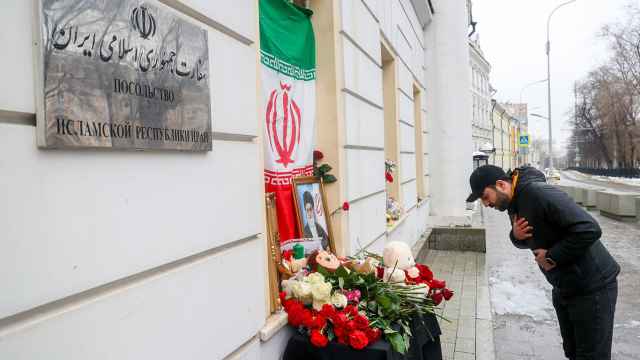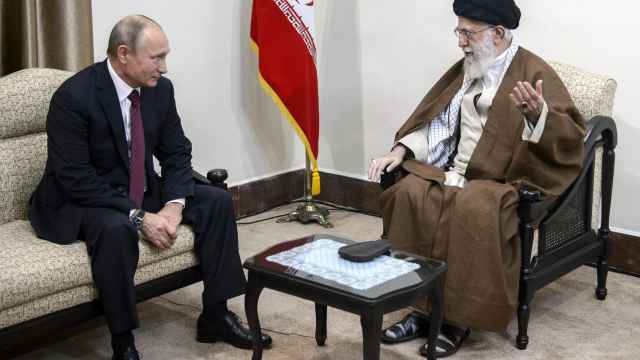Forty percent of Muscovites spend more than an hour each way commuting to work or school, according to a survey by the state-run VTsIOM polling agency published Tuesday.
The trip takes between 30 minutes and an hour for 27 percent of the population, and only 4 percent reach their destination in less than half an hour. A full 29 percent don’t go to school or work at all.
For comparison, Forbes found earlier this year that the average American spends 26 minutes commuting one way.
Moving closer to their place of employment is not an option for most city residents.
Buying an apartment is a possibility for only a limited number of people, said Anna Ivanova of the Real Estate Market Indicators analytical agency.
"A young family has little chance of moving from the suburbs to Moscow," Ivanova said, "and a 25-year mortgage is hard to get."
She said $2,600 to $3,200 per square meter is the price range for a basic apartment in a new building, while the average income in Moscow is $1,300 per month.
Ivanova noted that apartment exchanges within Moscow and between Moscow and the surrounding area have become more popular since the beginning of the financial crisis, and some agencies now handle such transactions.
Renting is only somewhat easier.
Galina Kiselyova, head of the apartment rental department of the Inkom-Real Estate agency, said the typical single renter in Moscow is a "manager or specialist," earning slightly more than the average income.
A family where both spouses work can combine incomes, she said, which makes renting an option for workers in the social sphere, such as doctors.
Couples saving money to purchase an apartment are also a significant presence on the market, Kiselyova said, while foreigners make up a large part of the "elite" segment.
The public opinion survey found that 72 percent of the capital's residents leave their neighborhoods for reasons other than work or study no more than a few times per month.
Only 17 percent claimed to leave their neighborhoods weekly for personal purposes.
The main reasons given for personal travel were visiting friends and shopping. Residents said their visits are to relatives 14 percent of the time, while they visit friends 30 percent of the time.
The survey was conducted between Oct. 4 and 10. Pollsters interviewed 1,000 residents of Moscow, age 18 and over. The margin of error is 3.1 percentage points.
A Message from The Moscow Times:
Dear readers,
We are facing unprecedented challenges. Russia's Prosecutor General's Office has designated The Moscow Times as an "undesirable" organization, criminalizing our work and putting our staff at risk of prosecution. This follows our earlier unjust labeling as a "foreign agent."
These actions are direct attempts to silence independent journalism in Russia. The authorities claim our work "discredits the decisions of the Russian leadership." We see things differently: we strive to provide accurate, unbiased reporting on Russia.
We, the journalists of The Moscow Times, refuse to be silenced. But to continue our work, we need your help.
Your support, no matter how small, makes a world of difference. If you can, please support us monthly starting from just $2. It's quick to set up, and every contribution makes a significant impact.
By supporting The Moscow Times, you're defending open, independent journalism in the face of repression. Thank you for standing with us.
Remind me later.






